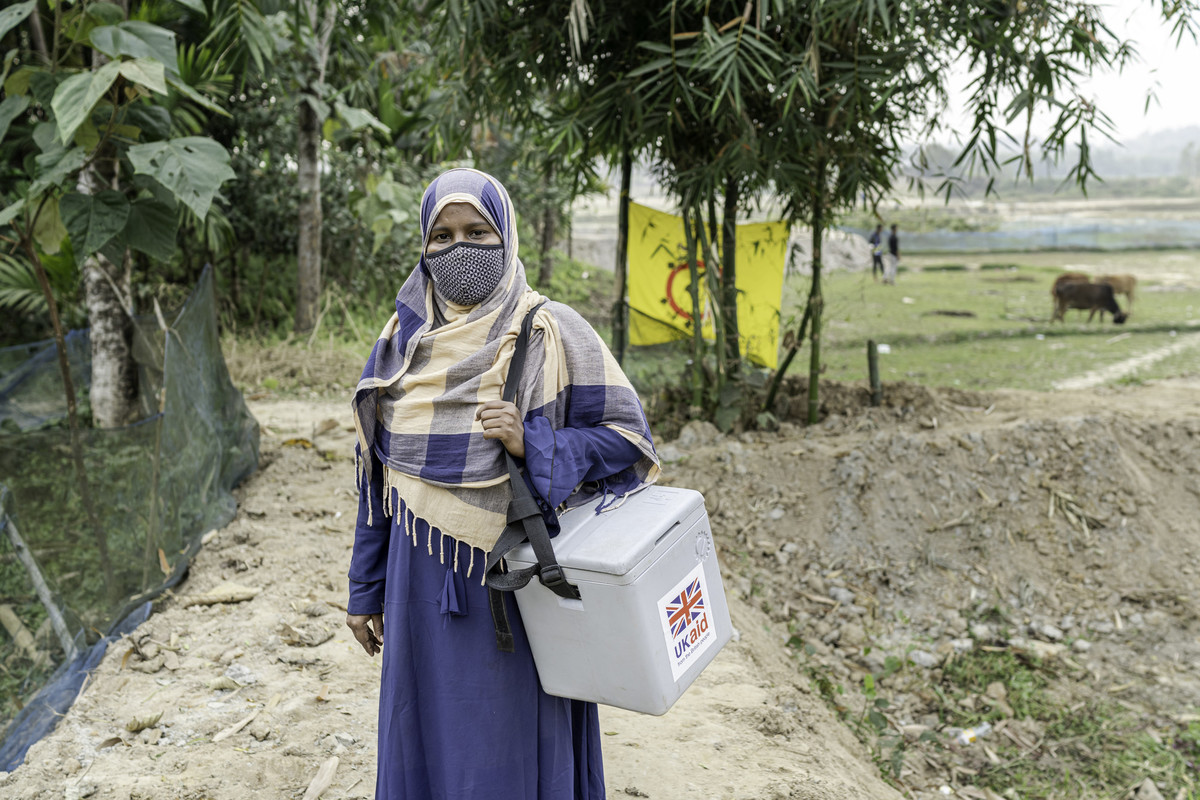
For Every Child, Vaccination
In 2023, no child should die from diseases that we can prevent with access to vaccination. But declining immunisation coverage around the world has put children’s lives and futures at risk.
UNICEF State of the World’s Children report, For Every Child Vaccination, warns that 67 million children have been left either unvaccinated (zero-dose) or under vaccinated between 2019-2021. Systems around the world that keep children alive are cracking under the pressure of global crises which has in turn led immunisation coverage back to lowest levels since 2008, leaving 1 in 5 children vulnerable to debilitating and potentially fatal diseases. Urgent action is needed now to build back immunity, catch-up on missed children, and ensure access to vaccination for every child.
Why does immunisation matter?
Without access to vaccination children are at risk from debilitating and life-threatening diseases that could otherwise be easily prevented, such as measles, polio, and yellow fever. Immunisation saves 4.4 million lives each year. This could potentially rise to 5.8million lives each year by 2030 if the goals of Immunisation Agenda 2030 (IA2030), a global immunisation strategy led by UNICEF and key partners, are met.
Access to vaccination have made remarkable achievements possible. Before the introduction of a measles vaccine in 1963 the disease killed 2.6 million people a year, mostly children (the figure was 128,000 in 2021, still too high but a significant reduction). Today 20 million people are walking who would have otherwise been paralysed from polio – an achievement made possible through access to vaccines.
Alongside saving children’s lives, immunisation benefits societies as children receiving vaccination can survive and thrive. Every $1 invested in immunisation delivers a return of investment of $26. Additionally, immunisation can be a crucial entry point to health system – meaning children being reached with vaccines can also be reached with other lifesaving interventions, this is crucial for preventing child deaths as children not receiving vaccines are often missed by other lifesaving services.
What is a zero-dose child and where do they live?
Zero-dose children are children that do not receive any vaccines at all, of which there were a total of 48 million between 2019-2021. Zero-dose children typically live within remote rural areas, urban slums, conflict affected settings, and within migrant and refugee communities. Reaching zero-dose children means making vaccination as accessible, inexpensive, and convenient as possible. Lack of access to vaccination is often indicative of other inequalities. The highest prevalence of zero-dose children is amongst mothers without any formal education. Empowering women and tackling gender inequalities is therefore critical to ensuring that children are reached with vaccination.
What does escalating violence in Sudan mean for immunisation?
Children continue to be impacted by the escalating humanitarian situation in Sudan. Even prior to the recent escalation of violence the impact of immunisation services and health systems was already severe, immunisation rates have fallen rapidly with 1 in 6 children being completely unprotected and the number of zero-dose children having doubled between 2019-2021. As the current conflict deepens the situation for children’s health in Sudan could become considerably worse.
How can health systems strengthening support children to be vaccinated?
Resilient health systems are vital for catching up on missed children and ensuring that systems around the world are shock proofed for the future. Key to strengthening health is a focus of health workers, especially women, who must be supported with adequate pay, training and be safe from violence and discrimination in the workplace. Supporting health workers will also be essential to increase demand for and confidence in vaccination, amid concerning evidence showing declining confidence in vaccination in many countries.
What can the UK Government do to protect children’s futures?
The UK Government has a crucial role to play to galvanise global action on immunisation and child survival. To push progress forward on building resilient global health systems and helping to ensure children attain their right to vaccination. We want to see:
📈 investment in services that keep children alive, including immunisation
⚕️ our government putting children’s health first in the commitments, plans, and the conversations they have internationally
🌍 the implementation of plans to develop resilient health systems to catch-up on vaccinating missed and ensure every child can get the healthcare they have a right to.
What can you do?
Sign our petition here to call on the UK Government to take action and save lives
Write to your MP and share our ‘State of the World’s Children’ briefing.
By Neil Raw, Senior Policy Adviser, UNICEF UK

